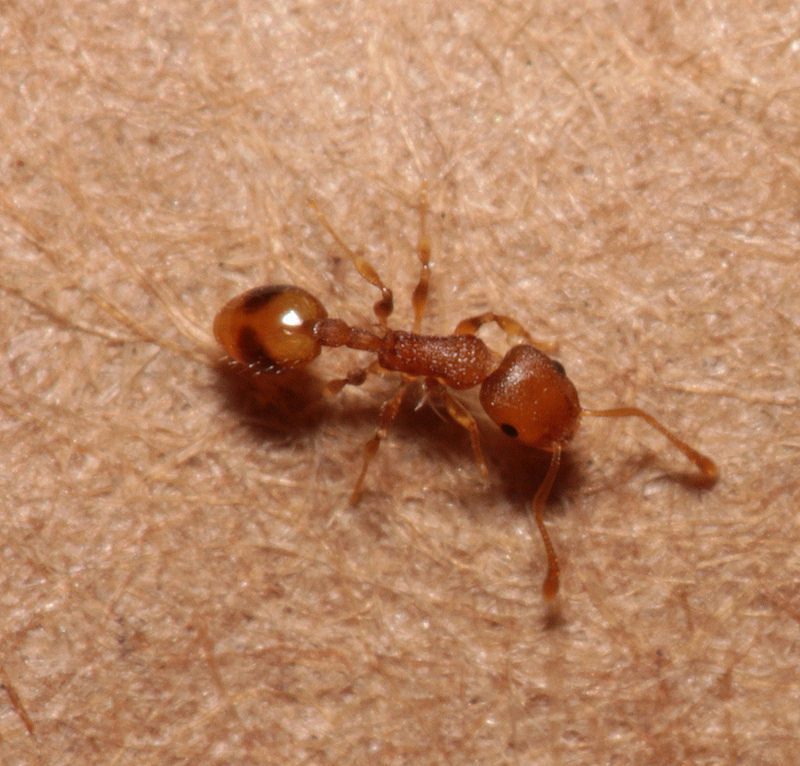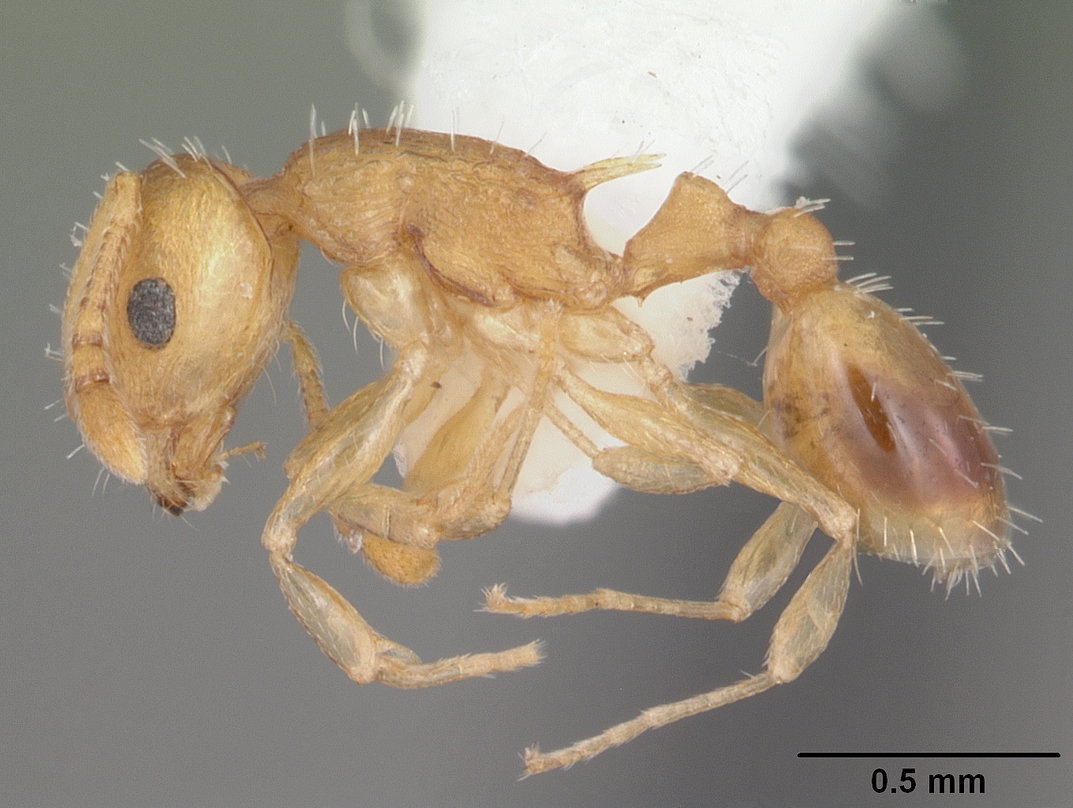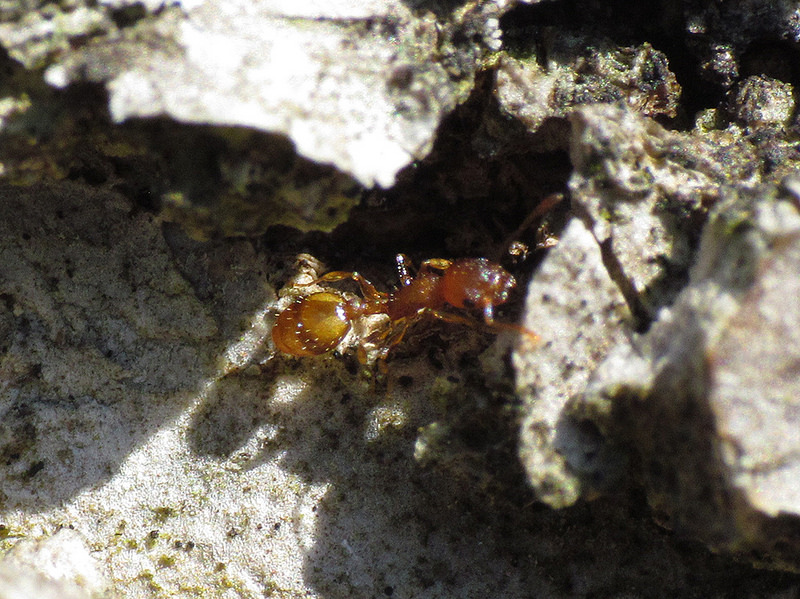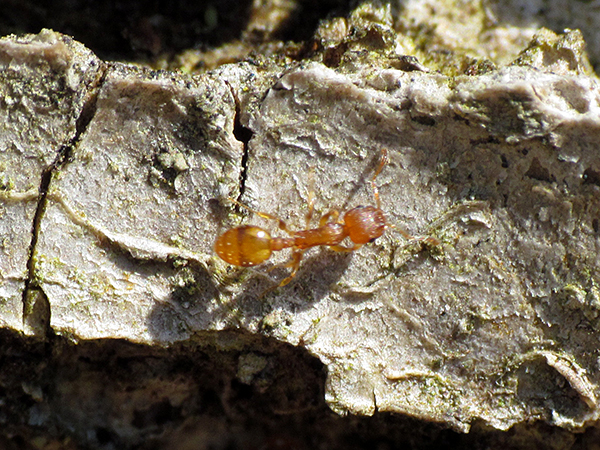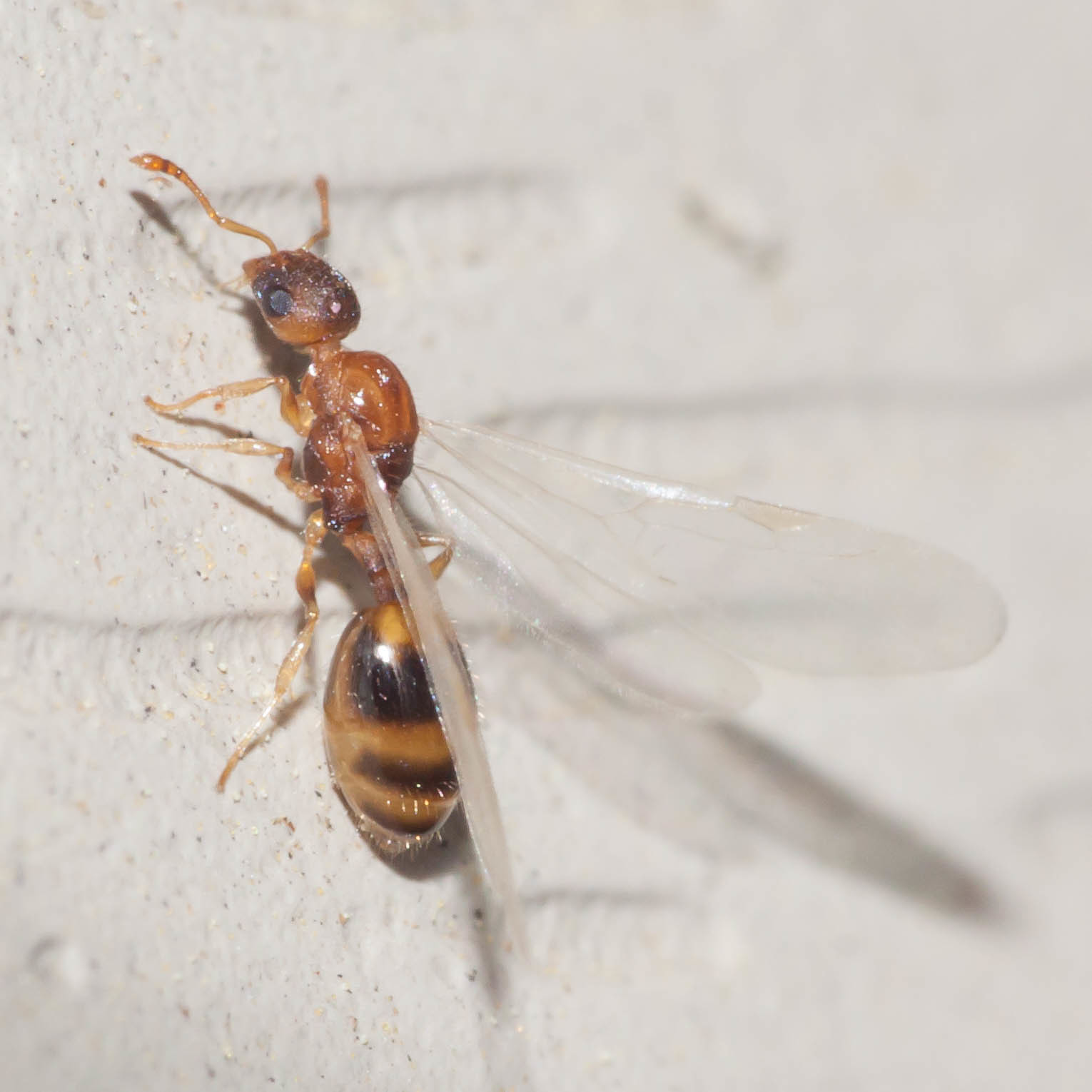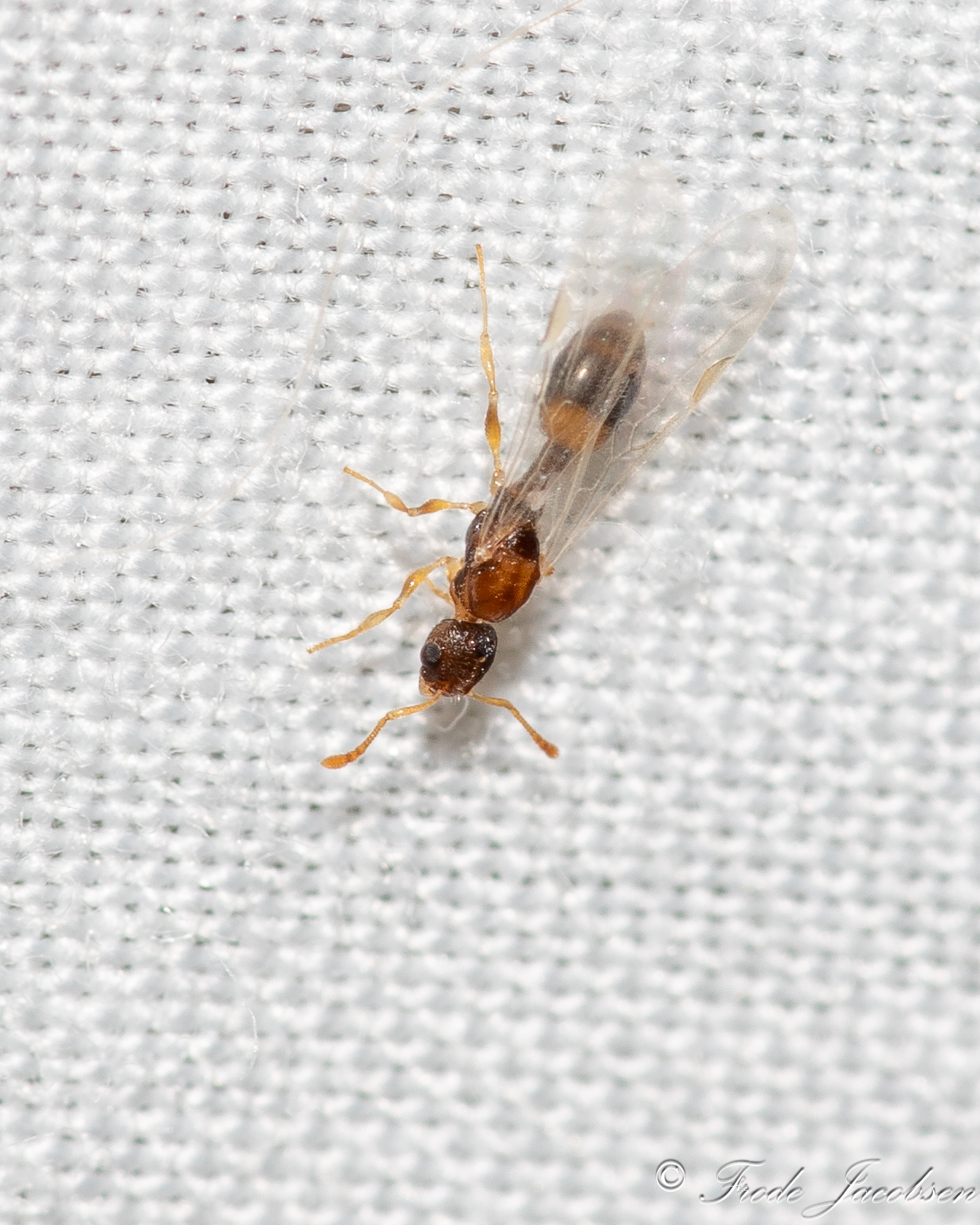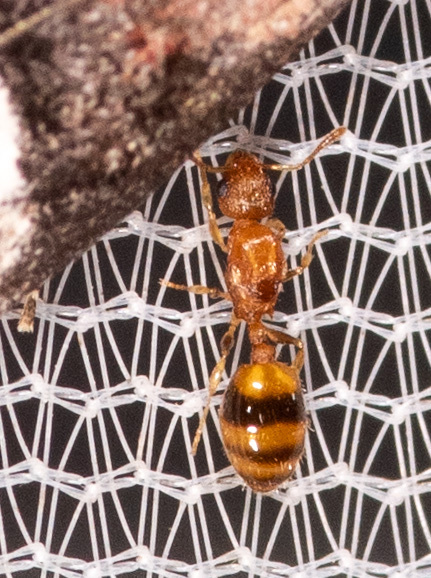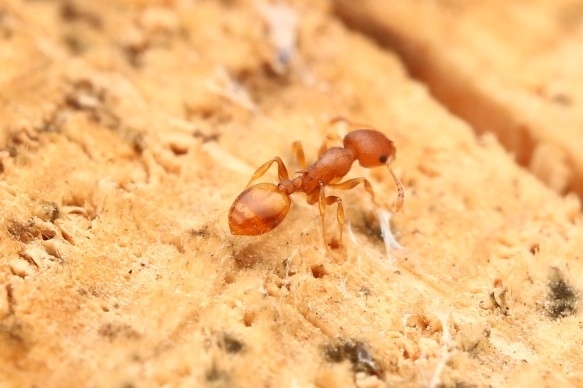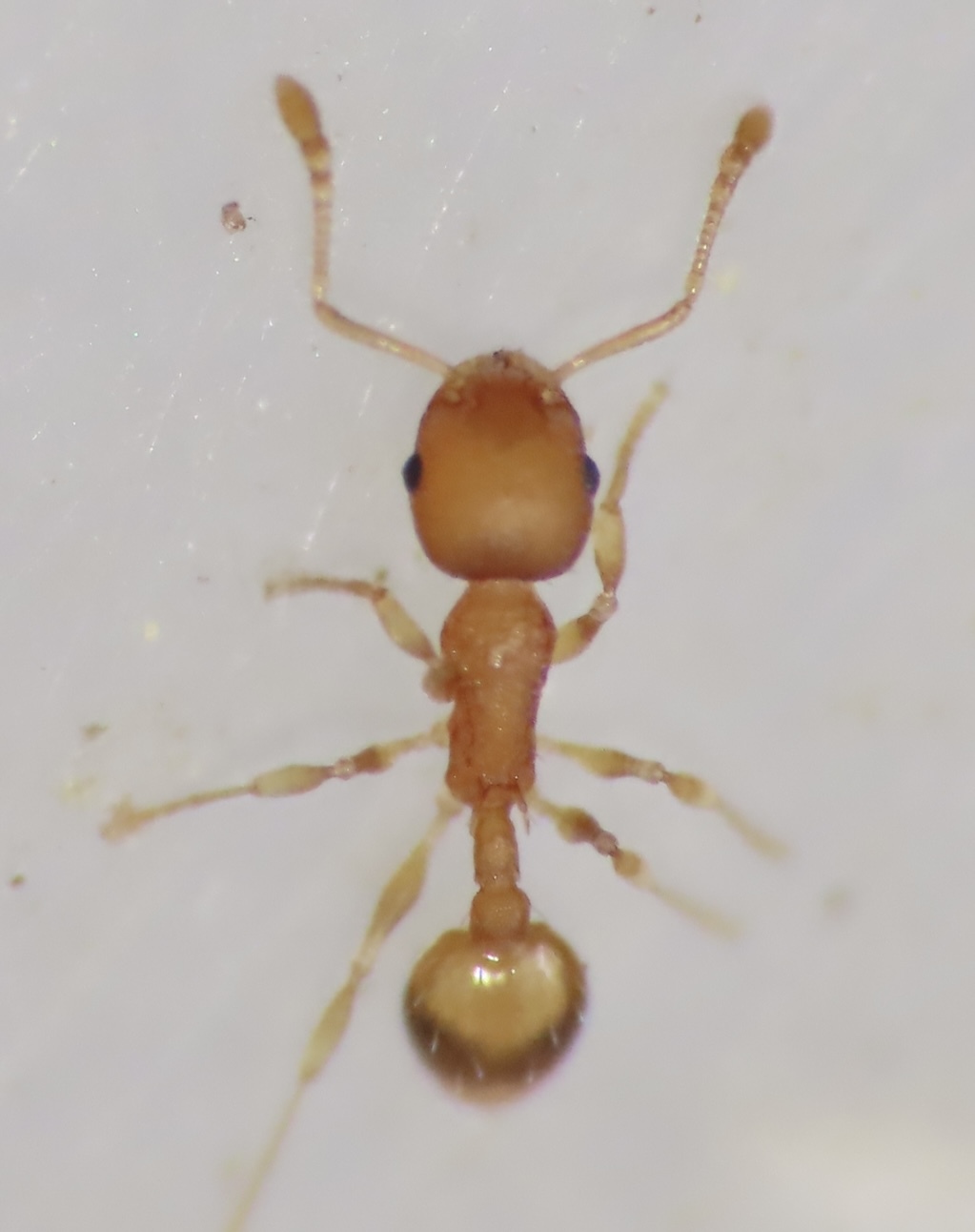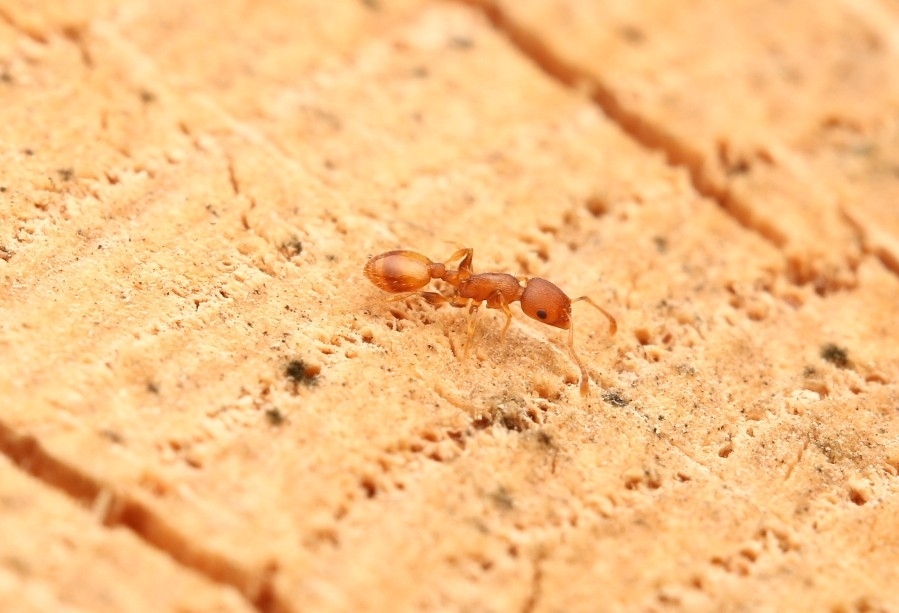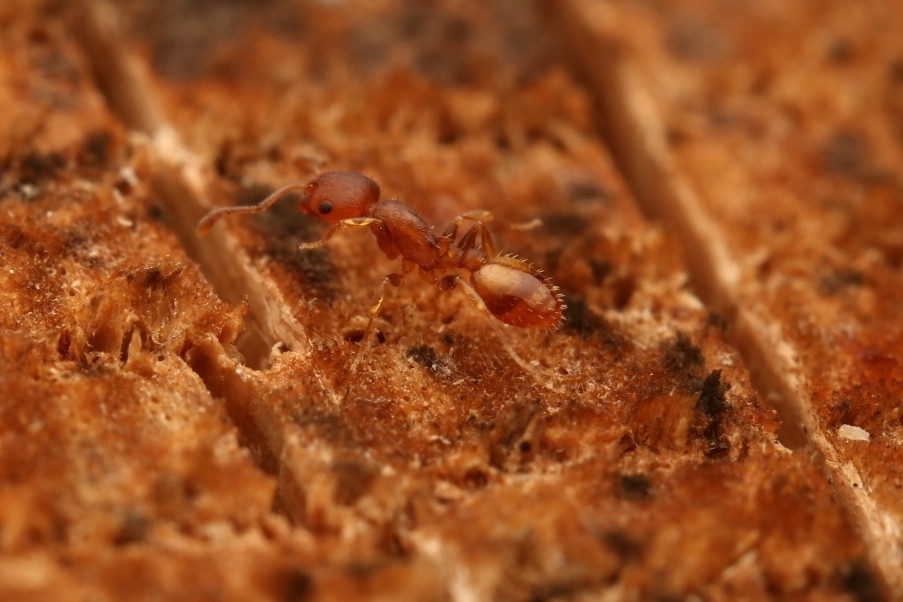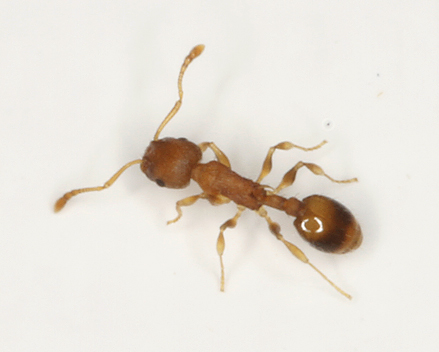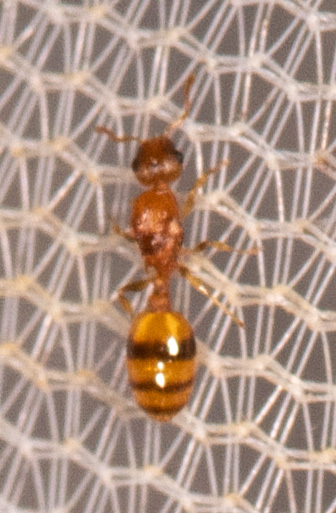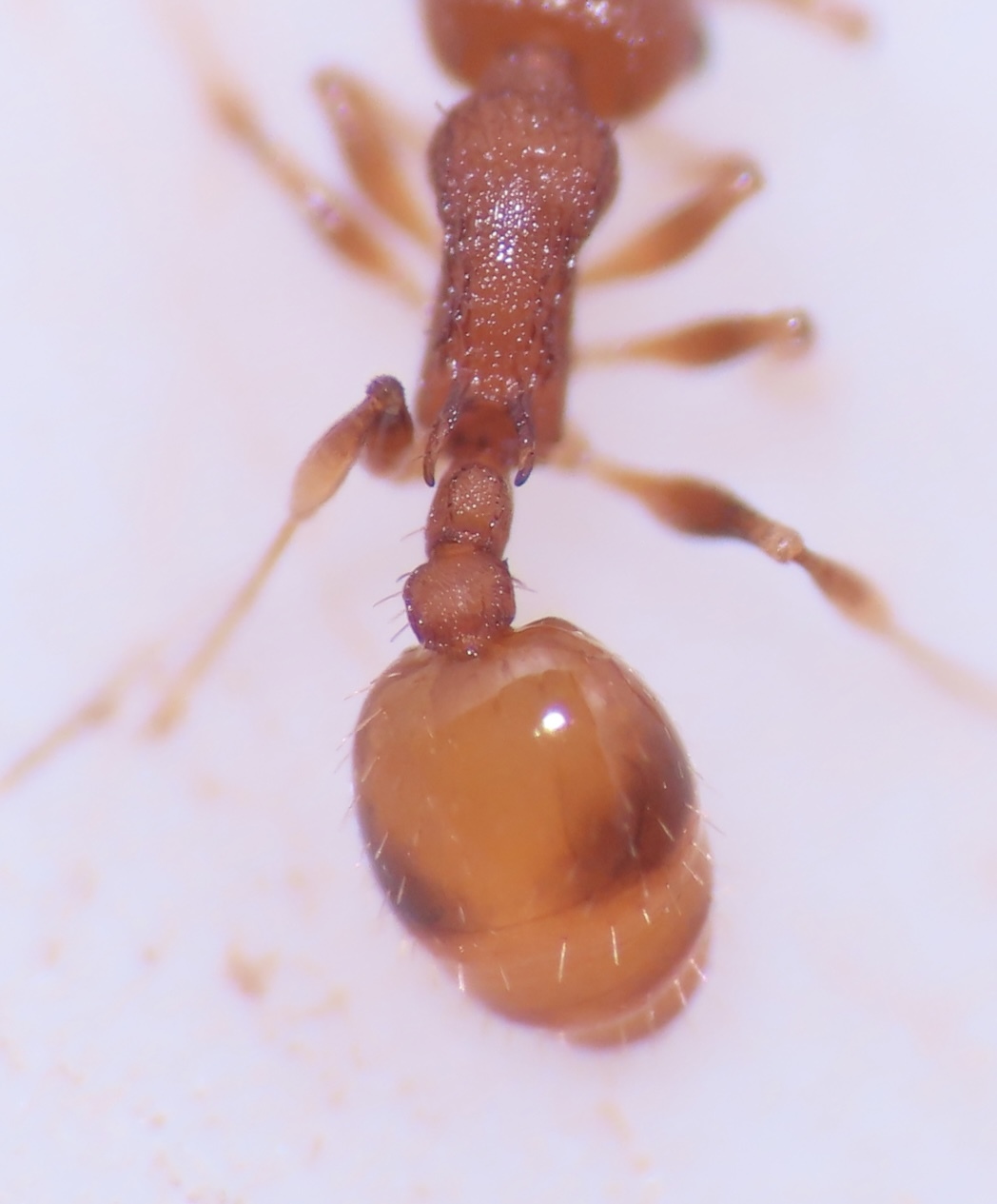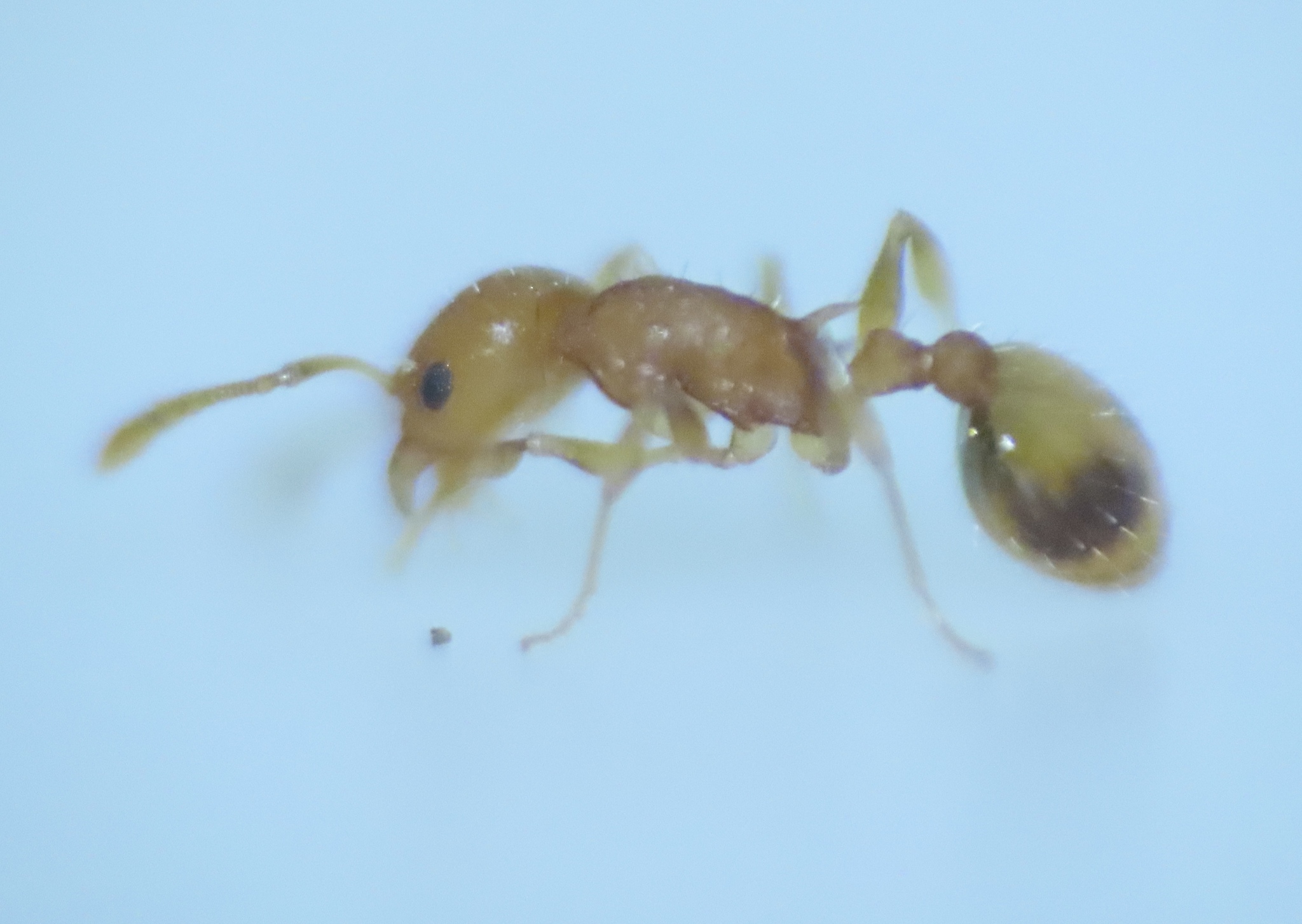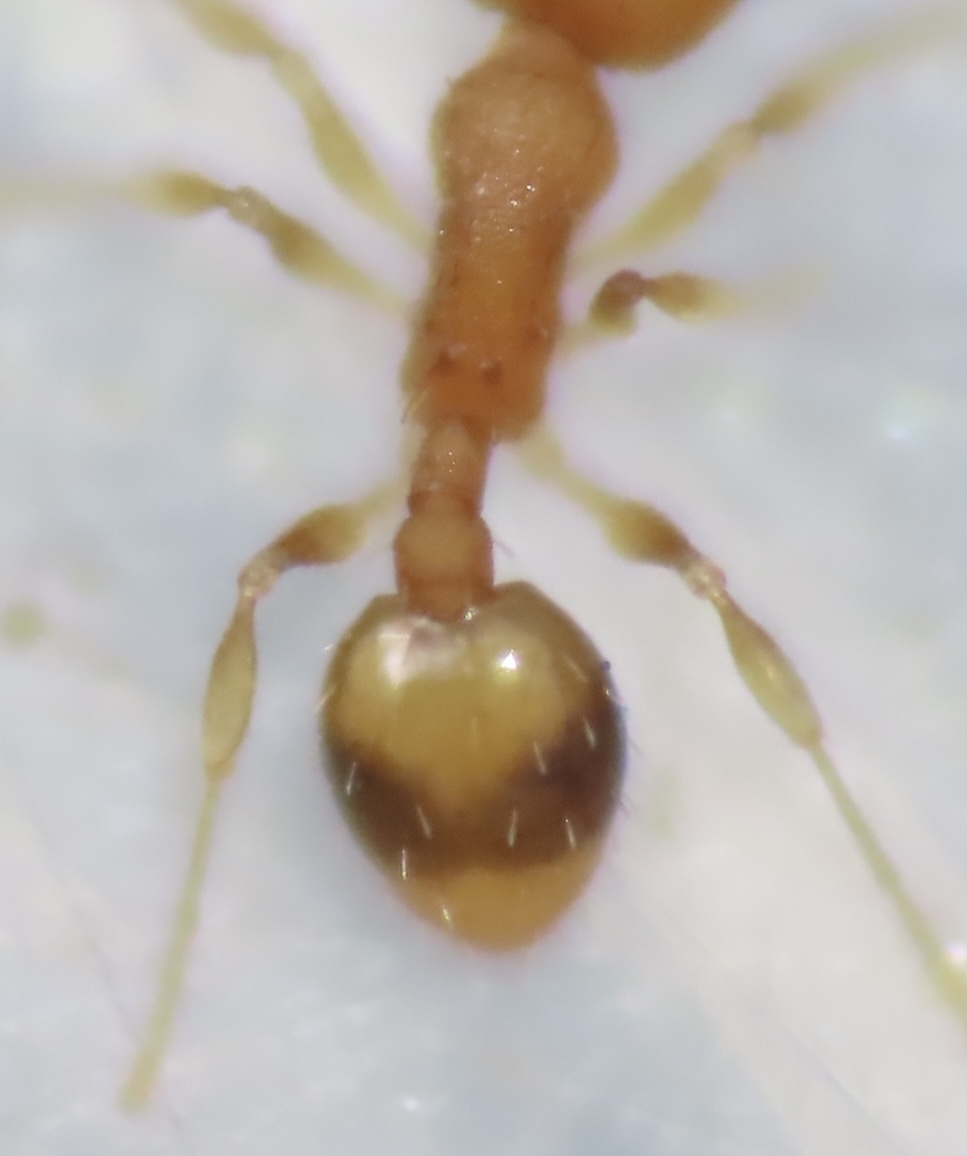Map Snapshot











31 Records
Status
Found in a variety of forested habitats encompassing dry upland forests and mesic lowland forests, woodlots, and woods edges (See Frye et al., 2014).
Seasonality Snapshot
Source: Wikipedia
| Temnothorax curvispinosus | |
|---|---|

| |
| Temnothorax curvispinosus worker | |
| Scientific classification | |
| Domain: | Eukaryota |
| Kingdom: | Animalia |
| Phylum: | Arthropoda |
| Class: | Insecta |
| Order: | Hymenoptera |
| Family: | Formicidae |
| Subfamily: | Myrmicinae |
| Genus: | Temnothorax |
| Species: | T. curvispinosus
|
| Binomial name | |
| Temnothorax curvispinosus (Mayr, 1866)
| |
Temnothorax curvispinosus, the acorn ant, is a species of ant in the genus Temnothorax.[1] The species is common and widely distributed in eastern United States, where they tend to inhabit forested areas. The ground-dwelling ants build their nests in plant cavities, in the soil or under rocks.[2] It is sometimes called the acorn ant because it can live inside hollowed out acorns.[3][4]
Acorn ants are found in both rural and urban habitats. The acorn ant is temperature-sensitive, and urban environments tend to be hotter and change temperature more rapidly than rural ones. Urban populations of acorn ants can evolve improved heat tolerance and also increased plasticity in responding to temperature changes.[3][4]
References
[edit]- ^ Bolton, B. (2015). "Temnothorax curvispinosus". AntCat. Retrieved 11 February 2015.
- ^ Mackay, W. P. (2000). "A review of the New World ants of the subgenus Myrafant, (genus Leptothorax) (Hymenoptera: Formicidae)". Sociobiology. 36: 265–444.
- ^ a b Bender, Eric (21 March 2022). "Urban evolution: How species adapt to survive in cities". Knowable Magazine. Annual Reviews. doi:10.1146/knowable-031822-1. Retrieved 31 March 2022.
- ^ a b Diamond, Sarah E; Chick, Lacy D; Perez, Abe; Strickler, Stephanie A; Zhao, Crystal (14 June 2018). "Evolution of plasticity in the city: urban acorn ants can better tolerate more rapid increases in environmental temperature". Conservation Physiology. 6 (1): coy030. doi:10.1093/conphys/coy030. ISSN 2051-1434. PMC 6007456. PMID 29977563.
External links
[edit] Media related to Temnothorax curvispinosus at Wikimedia Commons
Media related to Temnothorax curvispinosus at Wikimedia Commons
